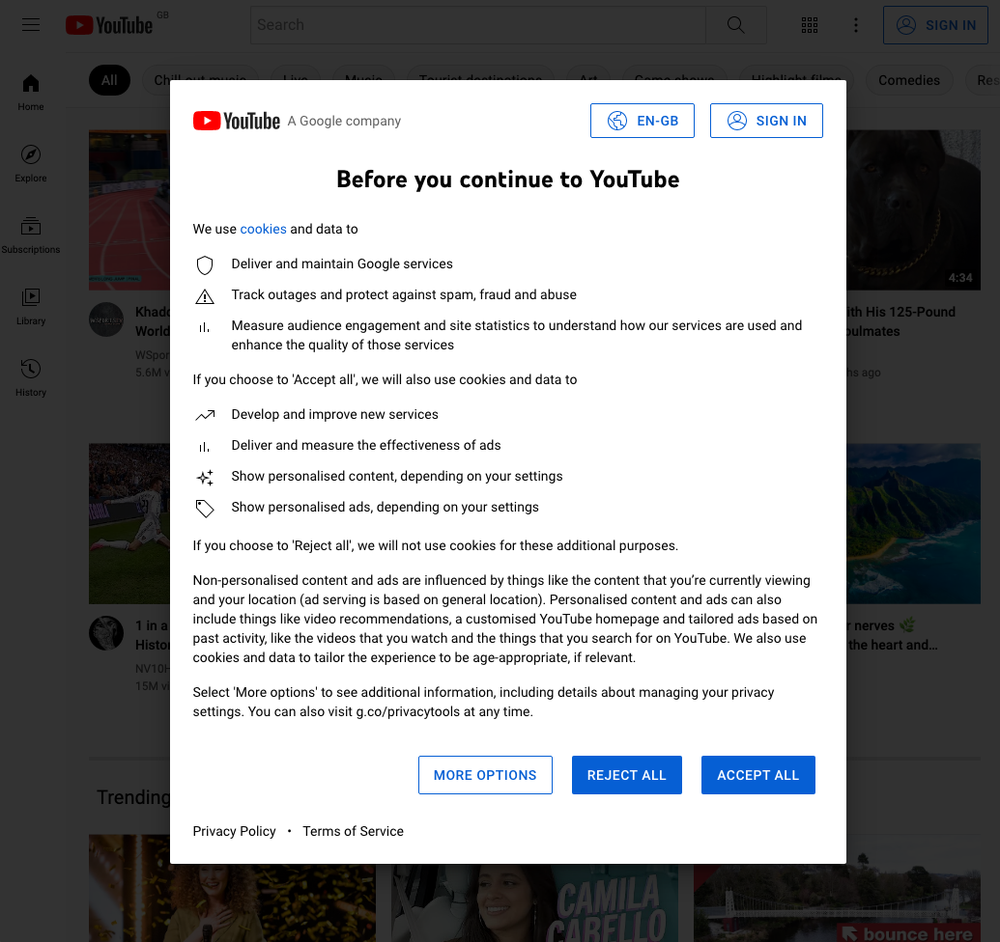Google will soon be giving European countries a “Reject All” button in the Search and YouTube cookie consent banner.
This change, which was revealed by Google’s Product Manager for Privacy, Safety & Security Sammit Adhya in a blog post, has already been rolled out in France and will be cascaded to the rest of the European Economic Area, the UK, and Switzerland. Adhya didn’t provide a date on the cascade.
From the Adhya’s post:
“In the past year, regulators who interpret European laws requiring these banners, including data protection authorities in France, Germany, Ireland, Italy, Spain and the UK, have updated their guidance for compliance. We’re committed to meeting the standards of that updated guidance and have been working with a number of these authorities.”
With directions from France’s Commission Nationale de l’Informatique et des Libertés (CNIL), Google finished a redesign of its cookie banner and changed the infrastructure behind how it handles cookies.
CNIL slapped Google with a $170M (€150M) fine for the confusing language in its cookie consent banners earlier this year. CNIL also found the asymmetry of letting users accept all tracking cookies with one click but allowing them to painstakingly untick individual options to reject them all as “unlawful.” Because the average user typically doesn’t want to bother doing this, they are left with no choice but to click “Accept all”—a win for Google’s business.
France has a strong case for declaring Google’s cookie consent behavior. In a 2019 studyconducted by academics at Ruhr University Bochum (Germany) and the University of Michigan (USA), researchers found that European consumers think that most cookie consent notices are meaningless or manipulative.

Adhya implied that this could be the first step for Google to change the way cookies work on its sites. He said he knew the implications of these changes and how they impact other sites and content creators who conduct business online.
“We believe this update responds to updated regulatory guidance and is aligned with our broader goal of helping build a more sustainable future for the web. We believe it is possible both to protect people’s privacy online and to give companies and developers tools to build thriving digital businesses.”










